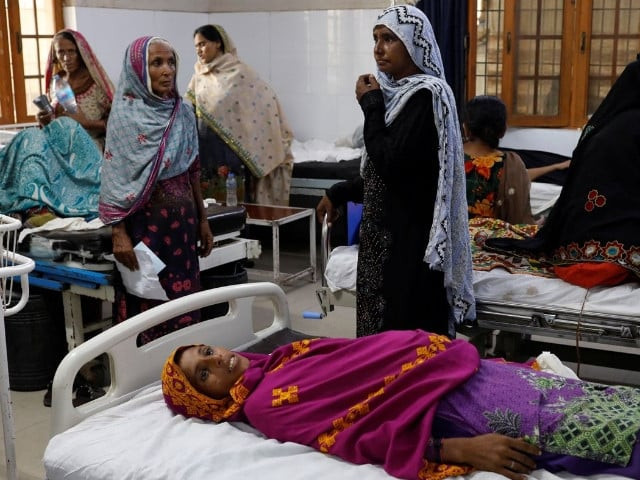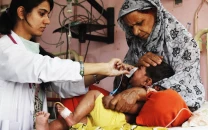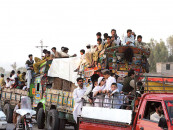Insensitive government: Expectant mothers left on their own
Adequate food, clean drinking water, prenatal healthcare are all missing from tent settlements

The monsoon flooding of biblical proportions is over for now but the lives it has upended will be distraught for years to come especially those of pregnant women who are doing their best to protect themselves and their yet to be born children.
With the politicians busy on the campaign trail for the upcoming byelections, little attention has been paid towards the glaring lack of healthcare for flood affectees currently living in tent settlements. Resultantly, women, in particular those who are due to give birth, have suffered the most. One of these pregnant women is 33-year-old, Dilshad Bibi, who hails from a village in Dera Ismail Khan is currently living in a tent on the outskirts of the city.
“Our mud home was destroyed by the flood and now we have nowhere to go.” Dilshad, whilst holding her belly and pointing to her other two children, lamented that the government had left them to fend for themselves. “No one from the health department has been here to check up on us and I have begun to fear for the life of my unborn child,” a visibly torn Dilshad complained, adding that she was in severe mental anguish.
However, Dilshad is not alone in her ordeal, as the Khyber Pakhtunkhwa (K-P) Health Department has reported that 25,000 pregnant women have been impacted in the province’s flood-affected districts. In Dera Ismail Khan alone, the health department estimates that 2,064 pregnant women have been affected. “The government must ensure that we get some form of prenatal care. Special camps should be established for pregnant mothers where thorough examinations are done and medication is given,” Dilshad implored while talking to the Express Tribune. Dr Saima, a senior gynecologist at Peshawar’s Khyber Teaching Hospital (KTH), agrees.
“If the government does not act soon, pregnant women in tent settlements who are experiencing flood-induced trauma, will suffer long-term repercussions.” The doctor was of the view that mobile hospitals should have been established by now in flood-hit districts. “The delay in building dedicated units for expecting women, will affect the health of the child and the mother alike,” she explained, adding that pregnant women did not need further stress in this already challenging period of their lives.
While it remains to be seen whether the government will address the plight of women, Shahzad Khan, the security in-charge of the camp where Dilshad and others like her are currently seeking abode, said that the government lacked empathy. “All the women in this camp are suffering from heat, hunger, and thirst. There is barely any clean drinking water or proper shelter. However, the government is nowhere to be seen,” Khan told The Express Tribune.
Published in The Express Tribune, October 17th, 2022.



















COMMENTS
Comments are moderated and generally will be posted if they are on-topic and not abusive.
For more information, please see our Comments FAQ